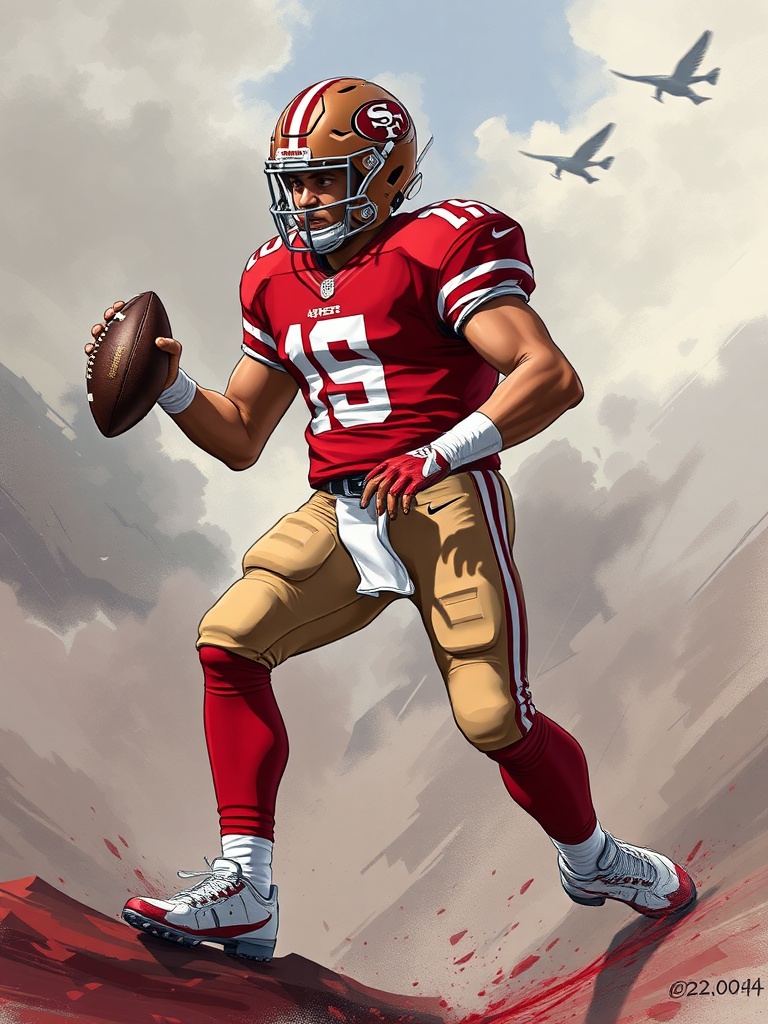How the 49ers Built a Modern NFL Powerhouse
The San Francisco 49ers remain one of the most watched franchises in football, blending traditional toughness with modern offensive innovation.
Their identity centers on a scheme-first approach, smart roster construction and a culture that values development, versatility and adaptability.
Offensive identity: creativity and efficiency
At the core of the offense is a system designed to create easy completions and high-value rushing opportunities. Pre-snap motion, creative run concepts and play-action are staples that force defenses to account for multiple threats on every snap. The quarterback is asked to make quick, accurate reads and deliver timing throws, while running backs and tight ends are used as mismatches in both the ground and passing games. This approach keeps opposing coordinators guessing and opens up big-play potential without relying solely on deep shots.
Defensive approach: speed, discipline and matchup versatility
On defense, the priority is generating pressure without sacrificing coverage integrity.
Linebackers who can handle pass coverage, defensive linemen who win one-on-one matchups, and defensive backs who tackle like linebackers form the backbone of the unit.
Versatility is a hallmark: players who can line up in multiple spots allow the staff to disguise looks and adjust to opponent tendencies. Scheme flexibility helps against varied offenses and keeps the roster balanced.
Roster building: draft development plus targeted veteran additions
Successful roster construction for the team combines high-value draft picks with strategic veteran acquisitions. The scouting department emphasizes athleticism, football IQ and scheme fit—players who can absorb complex playbooks and contribute in multiple phases. Free agency and trades are used to fill immediate needs, while rookie development sustains depth and long-term upside.
Managing the salary structure and maintaining depth along the offensive line and at skill positions are frequent areas of focus.

Coaching and culture: detail-oriented and player-forward
Coaching philosophy emphasizes precision, tempo control and situational football. Practice time is often devoted to specific game scenarios—short-yardage, two-minute drills, red-zone execution—which translates to cleaner game-day decisions. A player-first culture that rewards accountability and preparation creates buy-in across the roster, from veterans to younger contributors.
Fan base and home-field edge
The “Faithful” are known for intense loyalty and deep knowledge of the roster and schemes. Home games at Levi’s Stadium provide a visceral atmosphere, and the broader Bay Area market amplifies national attention. Community engagement, alumni presence, and a storied history keep the fan base connected through peaks and valleys.
What to watch going forward
Depth and health are always pivotal. Young players stepping into larger roles, the evolution of the offensive playbook, and how the defense handles increasingly mobile quarterbacks are key storylines. Continued investment in offensive line play and pass-rushing talent usually makes the biggest difference over the long haul.
Whether you follow the team for strategic innovation, star players, or the passion of the Faithful, the 49ers represent a case study in marrying football fundamentals with contemporary tactics. Their focus on adaptable schemes, player development and roster balance keeps them competitive and relevant in a fast-evolving league.